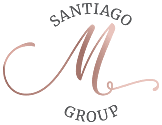Strategies for Success in Panel Interviews
Navigating a panel interview can be a daunting task, yet it presents a unique opportunity to showcase your skills and experience to multiple decision-makers simultaneously. Preparing effectively and understanding its dynamics can significantly enhance your chances of success. Here, we delve into some essential panel interview tips, techniques, and best practices to help you shine in this setting.
What is a panel interview?
A panel interview involves a candidate facing several interviewers at once, each representing different departments or areas of expertise within the organization. This format aims to evaluate how well a candidate fits the company’s culture and meets the job requirements from multiple perspectives. It can be intense, but with the right preparation, you can turn it into a platform to demonstrate your versatility and competence.
Panel interview tips for preparation
One of the most effective panel interview tips is to research the panelists beforehand. Understanding their roles, professional backgrounds, and what they might be looking for can give you a strategic advantage. This allows you to tailor your responses to address their specific concerns and interests.
Another crucial tip is to rehearse answering panel interview common questions. These might include inquiries about your experience, how you handle conflict, your problem-solving abilities, and your understanding of the company. Practicing your responses ensures that you can articulate your thoughts clearly and confidently during the actual interview.
Engage in mock interviews, preferably with friends or mentors who can simulate the panel setting. This practice can help you get comfortable with the format and improve your ability to handle multiple questions from different directions.
Effective panel interview techniques
During the interview, one of the most important panel interview techniques is to maintain eye contact with all the panelists. While responding to a specific question, begin by addressing the person who asked it but make sure to also include the other panelists by occasionally looking at them. This shows respect and keeps everyone engaged in your response.
Active listening is another important aspect. Pay close attention to each question, and if you’re unsure, don’t hesitate to ask for clarification. This demonstrates that you are thoughtful and thorough – these qualities are highly valued in any professional setting.
It’s also beneficial to be concise yet comprehensive in your answers. The panelists have limited time, and you need to make a strong impression without overwhelming them with excessive details. Focus on delivering clear, relevant, and impactful responses.
What are panel interview best practices?
Adopting some panel interview best practices can significantly boost your performance. Firstly, dress professionally – your appearance should reflect the company’s culture and the position you are applying for.
Arrive early to the interview to show punctuality. Use this time to calm your nerves, review your notes, and get a sense of the environment.
When introducing yourself, do so with confidence. A firm handshake, a warm smile, and a polite greeting can set the tone for a positive interaction. Also, be ready to answer panel interview common questions regarding your previous experiences, or strengths and weaknesses. Prepare examples that highlight your achievements and how they relate to the role you’re applying for. Share specific instances where you successfully worked as part of a team, demonstrating your interpersonal and collaborative skills.
The takeaway
Panel interviews, though challenging, offer a unique platform to demonstrate your capabilities to a group of decision-makers. By following these panel interview tips, techniques, and best practices, you can approach the process with confidence and poise.
Remember, starting your recruitment journey on the right foot can make a significant difference. Professional resume writing services can help craft a compelling resume that highlights your strengths and accomplishments, setting the stage for a successful interview process.




